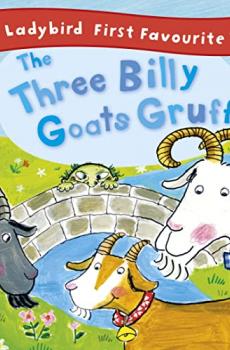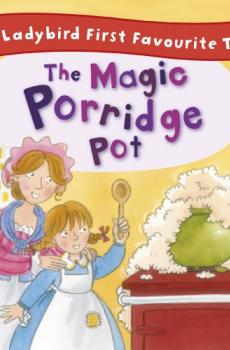The Dawn and the Day
The Dawn and the Day
Đăng nhập để đọc sách và tải về file pdf miễn phí
| Nhà xuất bản | Chưa rõ |
|---|---|
| Nhà xuất bản sách tiếp cận | Public domain |
| Năm xuất bản | 2004 |
| Coppy right | Chưa rõ |
The golden age—when men were brothers all,
The golden rule their law and God their king;
When no fierce beasts did through the forests roam,
Nor poisonous reptiles crawl upon the ground;
When trees bore only wholesome, luscious fruits,
And thornless roses breathed their sweet perfumes;
When sickness, sin and sorrow were unknown,
And tears but spoke of joy too deep for words;
When painless death but led to higher life,
A life that knows no end, in that bright world
Whence angels on the ladder Jacob saw,
Descending, talk with man as friend to friend—
That age of purity and peace had passed,
But left a living memory behind,
Cherished and handed down from sire to son
Through all the scattered peoples of the earth,
A living prophecy of what this world,
This sad and sinful world, might yet become.
The silver age—an age of faith, not sight—
Came next, when reason ruled instead of love;
When men as through a glass but darkly saw
What to their fathers clearly stood revealed
In God's own light of love-illumined truth,
Of which the sun that rising paints the east,
And whose last rays with glory gild the west,
Is but an outbirth. Then were temples reared,
And priests 'mid clouds of incense sang His praise
Who out of densest darkness called the light,
And from His own unbounded fullness made
The heavens and earth and all that in them is.
Then landmarks were first set, lest men contend
For God's free gifts, that all in peace had shared.
Then laws were made to govern those whose sires
Were laws unto themselves. Then sickness came,
And grief and pain attended men from birth to death.
But still a silver light lined every cloud,
And hope was given to cheer and comfort men.
The brazen age, brilliant but cold, succeeds.
This was an age of knowledge, art and war,
When the knights-errant of the ancient world,
Adventures seeking, roamed with brazen swords
Which by a wondrous art—then known, now lost—
Were hard as flint, and edged to cut a hair
Or cleave in twain a warrior armor-clad
And armed with shields adorned by Vulcan's art,
Wonder of coming times and theme for bards.
Then science searched through nature's heights and depths.
Heaven's canopy thick set with stars was mapped,
The constellations named, and all the laws searched out
That guide their motions, rolling sphere on sphere.
Then men by reasonings piled up mountain high
Thought to scale heaven, and to dethrone heaven's king,
Whose imitators weak, with quips and quirks
And ridicule would now destroy all sacred things.
This age great Homer and old Hesiod sang,
And gods they made of hero, artist, bard.
At length this twilight of the ages fades,
And starless night now sinks upon the world—
An age of iron, cruel, dark and cold.
On Asia first this outer darkness fell,
Once seat of paradise, primordial peace,
Perennial harmony and perfect love.
A despot's will was then a nation's law;
An idol's car crushed out poor human lives,
And human blood polluted many shrines.
Then human speculation made of God
A shoreless ocean, distant, waveless, vast,
Of truth that sees not and unfeeling love,
Whence souls as drops were taken back to fall,
Absorbed and lost, when, countless ages passed,
They should complete their round as souls of men,
Of beasts, of birds and of all creeping things.
And, even worse, the cruel iron castes,
One caste too holy for another's touch,
Had every human aspiration crushed,
The common brotherhood of man destroyed,
And made all men but Pharisees or slaves.
And worst of all—and what could e'en be worse?—
Woman, bone of man's bone, flesh of his flesh,
The equal partner of a double life,
Who in the world's best days stood by his side
To lighten every care, and heighten every joy,
And in the world's decline still clung to him,
She only true when all beside were false,
When all were cruel she alone still kind,
Light of his hearth and mistress of his home,
Sole spot where peace and joy could still be found—
Woman herself cast down, despised was made
Slave to man's luxury and brutal lust.
Then war was rapine, havoc, needless blood,
Infants impaled before their mothers' eyes,
Women dishonored, mutilated, slain,
Parents but spared to see their children die.
Then peace was but a faithless, hollow truce,
With plots and counter-plots; the dagger's point
And poisoned cup instead of open war;
And life a savage, grim conspiracy
Of mutual murder, treachery and greed.
O dark and cruel age! O cruel creeds!
O cruel men! O crushed and bleeding hearts,
That from the very ground in anguish cry:
"Is there no light—no hope—no help—no God?"
See Hesiod's description of the shield of Hercules, the St. George of that ancient age of chivalry.
See the celebrated zodiac of Denderah, given in Landseer's "Sabaean Researches," and in Napoleon's "Egypt."
The Dawn and the Day
or
The Buddha and the Christ.




